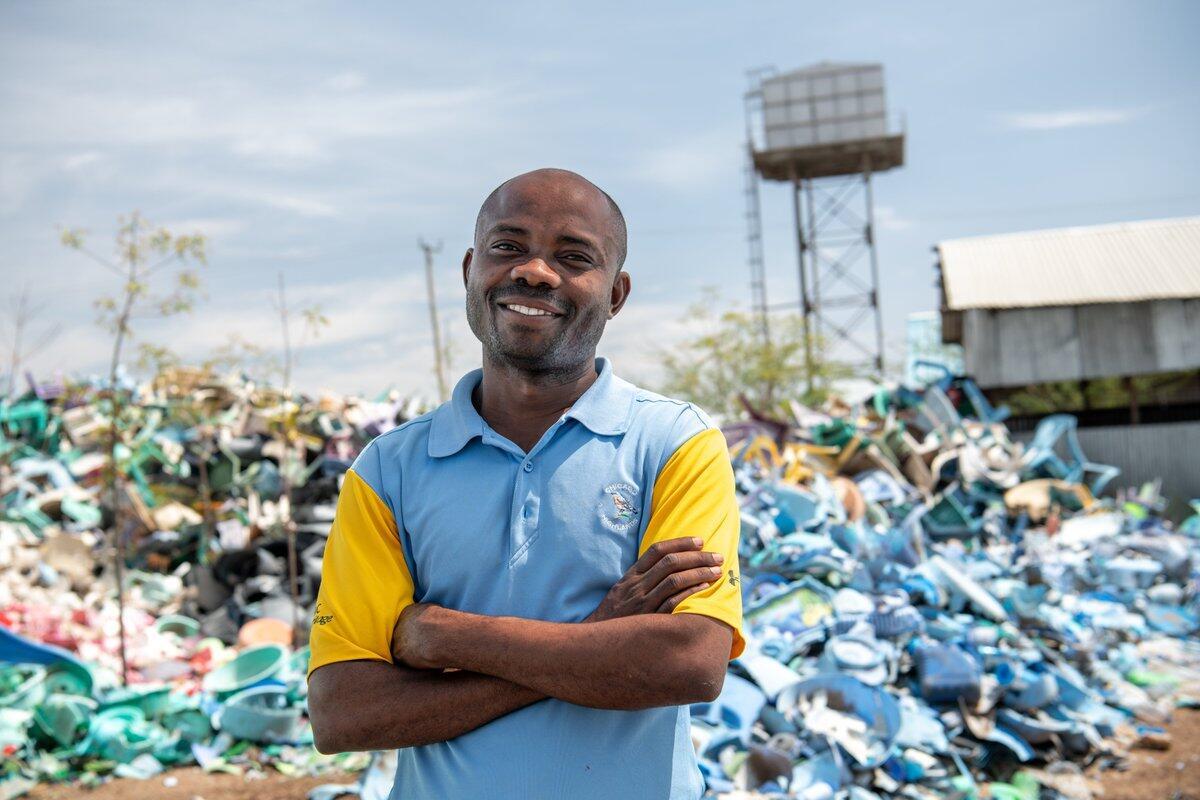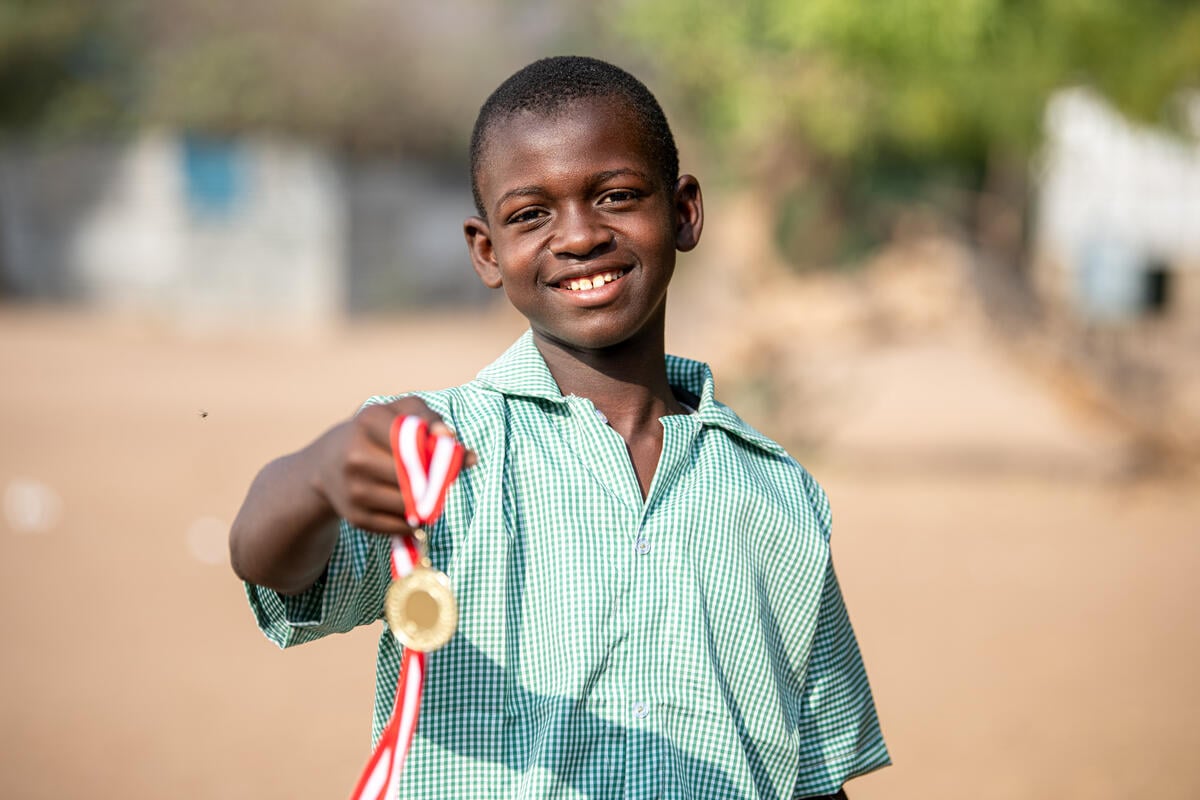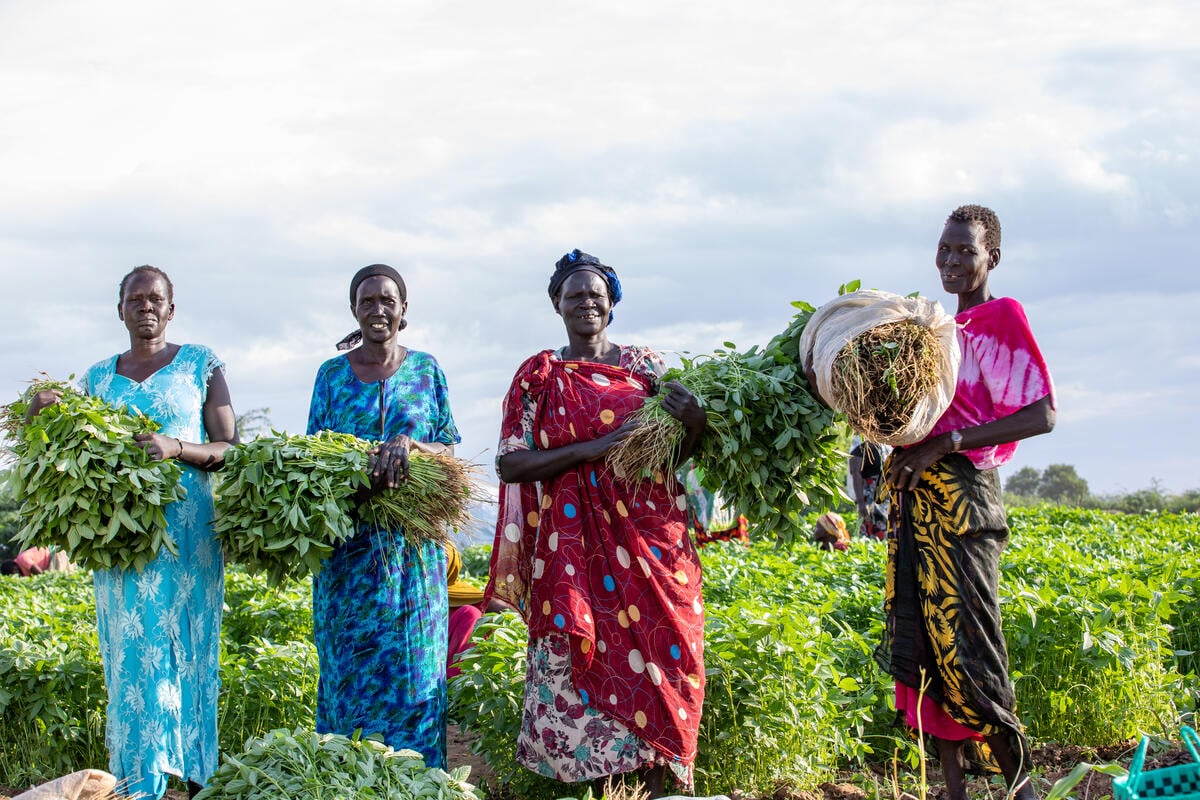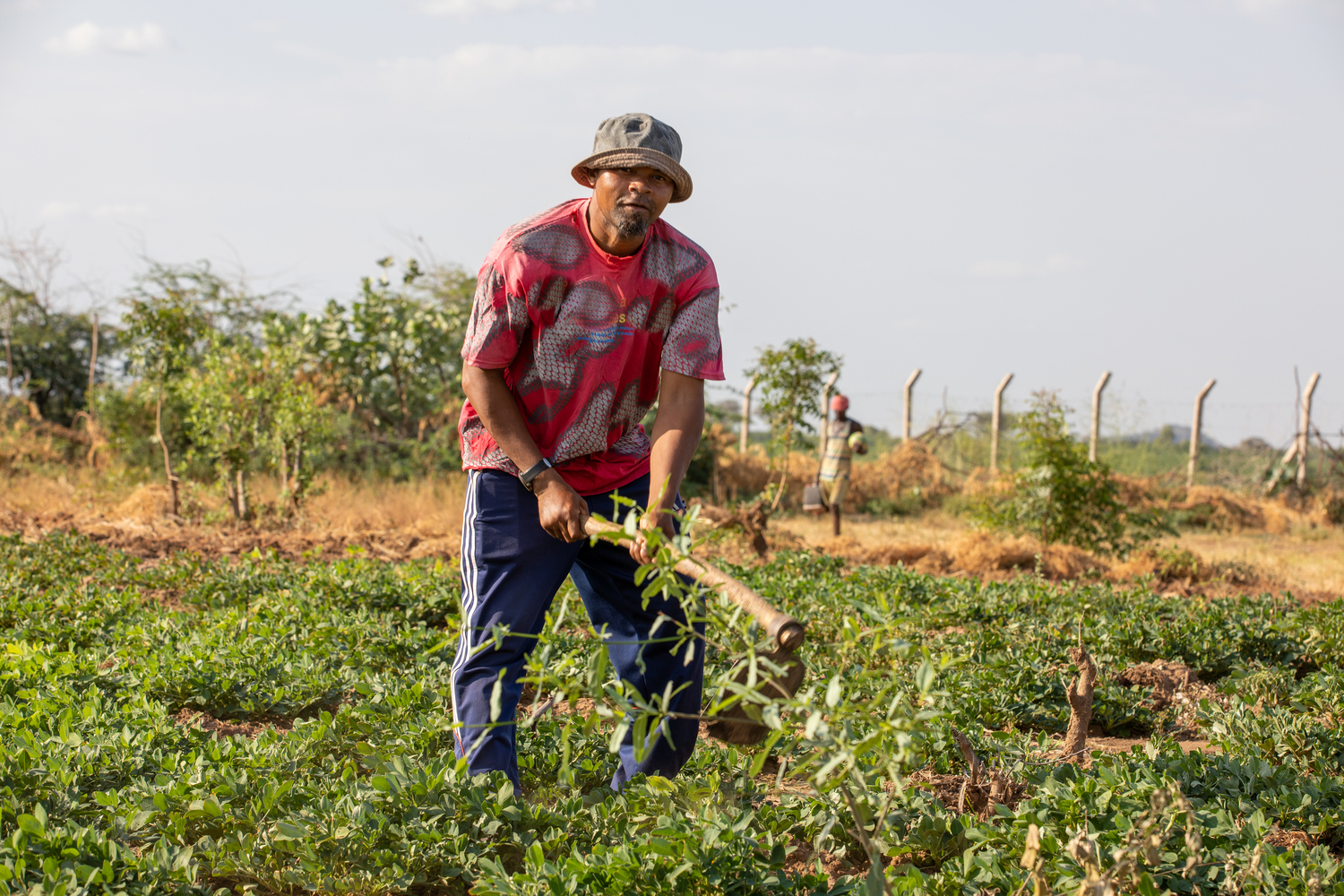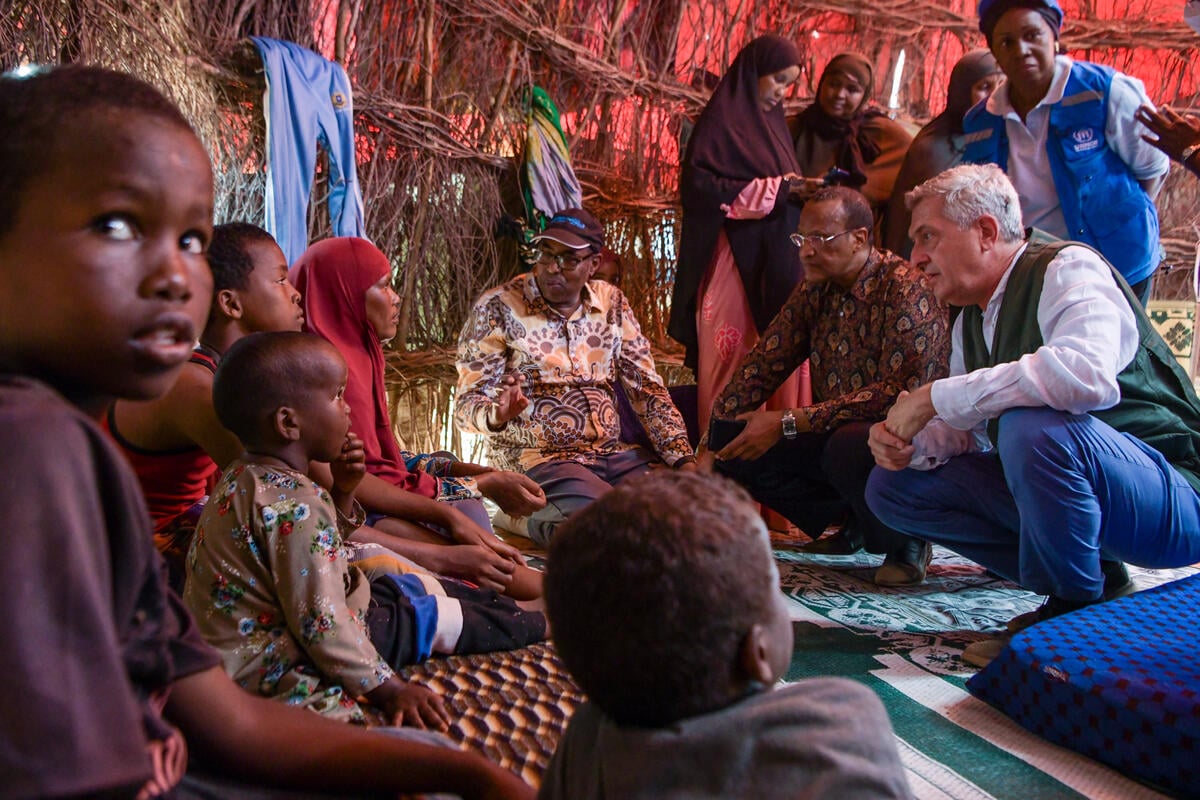Feature: When "foreigners" become like family - helping refugees in Nairobi
Feature: When "foreigners" become like family - helping refugees in Nairobi

NAIROBI, Kenya (UNHCR) - It is early Saturday morning. Truphosa is still deep in sleep, having stayed up the previous night to catch up with her mother, who had complained for some time that her daughter does not have time for her and spends all her time taking care of "foreigners" at the expense of the family.
Truphosa had reflected on this claim for a while before sleep settled in. To appease her, Truphosa had decided to take her mother shopping and buy her a flowing dress, popularly known as kitenge, to wear to church on Sundays.
"All the women my age wear new and beautiful vitenge every Sunday, except me. And yet my daughter works for the United Nations," her mother had complained the day before. [Vitenge is the collective form for kitenge in Kiswahili, an east African language.]
Suddenly Truphosa's phone rings. She is tempted to ignore it. Who could be calling at 5.30 am? Her instinct tells her it is either a policeman or a refugee. True enough, as she picks the phone, a deep voice booms, "Good morning, Madam. This is the police officer commanding Kamukunji police station. I believe I am talking to Madam Truphosa."
Barely awake, she mumbles something, which she later recalls was a promise to go to the police station as soon as possible. Another day in the life of a UNHCR protection officer in Nairobi has just begun.
Friday nights usually see the highest number of arrests in the Kenyan capital. The police conduct night patrols in the city suburbs where most of the "aliens" live, moving from one house to the next in search of foreigners said to be in Kenya illegally. The foreigners are then loaded onto a waiting lorry for transfer to various police stations. The police officers in charge then call the UN refugee agency to verify those claiming to be refugees or registered asylum seekers.
Typically, UNHCR protection staff like Truphosa report to the police station immediately and go through a process that has become routine. On arrival, she is told that the officer-in-charge has stepped out. Twenty minutes later, another officer enters. Truphosa introduces herself and says, "I am here to follow up on the arrests that were conducted last night in Majengo slums." But the police officer walks away telling his colleagues, "These are people from human rights organisations, I do not know what they want."
After about an hour of waiting, the receptionist seems to sympathise with Truphosa and suggests that she see the deputy officer-in-charge instead.
"Your people have now become a nuisance," he says by way of introduction.
Truphosa tells him about UNHCR's guidelines on the detention of refugees, including how refugees and asylum seekers should be treated. She stresses that detention procedures should be justified under both local and international law, and that detention facilities should provide separate facilities for men and women. She then gives the officer copies of all relevant documents issued by UNHCR.
The police officer reports that 86 aliens were arrested in the city the night before. "I am telling you this is just the beginning," he says. "The majority of them claim that they are refugees registered with you but they do not have their papers. Some even have expired documents and we are going to charge them with being in the country illegally. "
Truphosa requests access to the detainees with refugee claims, interviewing them in an operation that takes one-and-a-half hours. One by one, she checks the documents they are carrying to see if they are of concern to the refugee agency. Some of them explain why they left the refugee camps for urban areas, where they expose themselves to arrests. Truphosa identifies those who need medical attention before the detainees are sent back to the police cells to await the "verdict".

Out of the 86 detained, 63 are found to be persons of concern to UNHCR and have valid documentation. The rest are either new arrivals who have not yet approached the refugee agency or those who had left the refugee camps without authorisation.
But they cannot be released yet, not until the immigration department gives the final go-ahead. But this being a Saturday, the government offices are closed. Truphosa leaves the police station, frustrated. The detainees will have to wait in the cells over the weekend before the matter can be settled on Monday.
Come Monday, the immigration officer, unable to recommend that people holding UNHCR documents (or expired ones) be charged with illegal presence in Kenya, will order the refugee agency to provide buses to transfer the detainees to the refugee camps.
But Truphosa's worries are far from over. In addition to the detainees, she can already visualise the regular queues of asylum seekers that she and her colleagues will meet as they arrive at work on Monday morning. Hordes of people from the Horn of Africa. Still more from the African Great Lakes region. Silent. Unable to communicate with one another for lack of a common language.
Some, still shaken by the ordeals that have sent them into exile, will be seeking asylum for the first time. Others will be back for scheduled appointments, clutching tattered well-thumbed letters of appointment, anxious to know if UNHCR will take them under its wing as refugees.
Then there will be the odd woman or child, lying on the ground, too sick to join the winding queue. And, of course, there will be scores more who, having long left the remote refugee camps and now rattled by news of the police swoop on city estates, will have hurried to UNHCR to try to validate their stay in the capital.
For UNHCR protection officers in Nairobi, there is no typical day at work. Every day presents a different challenge. And as the days stretch into nights and the nights blend into weekends, the "foreigners" they try to help inevitably become like family.
By Emmanuel Nyabera
UNHCR Nairobi


